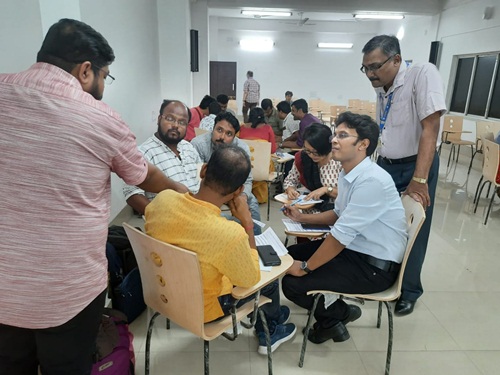CEMCA enhancing capacity of Higher Education Teachers on Blended Learning Practice in Jalpaiguri, West Bengal
A three-day workshop on “Enhancing the capacity of higher education teachers to implement blended learning” was organized jointly by Netaji Subhash Open University (NSOU) and Commonwealth Educational Media Centre for Asia (CEMCA) on 8-10 April 2022. The workshop was conducted in the Jalpaiguri Regional Centre of Netaji Subhash Open University of West Bengal. 40 Higher Education Teachers from different College/ University from the region attended the workshop. Out of which there were 31 male and 09 female teachers.
Workshop was inaugurated on 8th April 2022. NSOU & CEMCA has put their concerted efforts. During the workshop, a team of experienced academician exchanged their views, knowledge and competence on the minutiae of face-to-face, online and blended learning with its unique attributes in implementation in any educational context. The welcome address was delivered by Sri. Santanu Dam, Deputy Director, Jalpaiguri RC, NSOU. He greeted the attendees warmly and set the tone for the workshop by deliberating upon the University's collaborative ventures with CEMCA to bring about such a wonderful project.

The technical sessions were facilitated by Mr. Purandar Sengupta, Dr. Shaunak Ray and Prof. Anirban Ghosh along with the interaction and activities. Workshop facilitators covered the topics like: Blended Learning and Developing a Blended Learning Program (using ICT Tools); Diversified Learning Styles and Cognitive Levels of the different students with eloquence; scope for Value Addition while implementing the Learning Models; Development and Delivery of MOOCs and OER; Participatory Planning and Course Design for a blended learning material, etc.
The participants took the lead by documenting their Value Proposition of different learning styles through role-play. This was a vibrant session marked with Hands-on training Activity by using Canva for creating infographics and presentations for Blended Learning. Further, the participants were segregated into 6 groups according to their subjects/disciplines. The participants prepared a draft course using the template for course design on blended learning.

